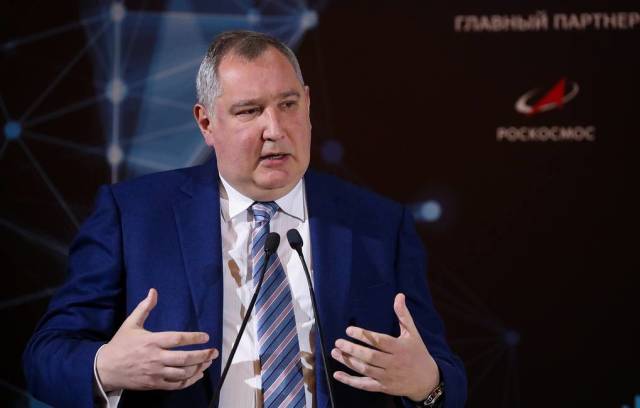Moscow. April 2. INTERFAX - The leadership of NASA, ESA and the Canadian Space Agency have responded to the proposal of Roscosmos to lift sanctions against the Russian space industry, said the head of Roscosmos Dmitry Rogozin.
"New and existing US export control measures continue to allow for cooperation between the US and Russia in order to ensure the continuous safe operation of the ISS," the head of NASA Bill Nelson said in a letter, which the head of Roscosmos cites in his telegram channel.
"In this regard, NASA will continue to interact with the relevant federal agencies and agencies of the United States in order to facilitate further cooperation within the ISS and its operation, including any necessary cooperation under the ISS program with the support of JSC Central Research Institute of Mechanical Engineering (JSC TsNIIMash) and JSC RCC Progress," it is noted in the letter.
"I can assure you that Canada continues to support the ISS program and is committed to its safe and successful operation. Although the Canadian Space Agency does not have direct cooperation with TsNIIMash JSC and Progress RCC JSC, we will continue to work with relevant Canadian government organizations to facilitate further cooperation and operation of the ISS," the letter from the head of the Canadian Space Agency says.
On March 31, the deadline set by Roscosmos for NASA, the European and Canadian Space Agencies to lift sanctions against several Russian enterprises expired. The future fate of the ISS will depend on this, the head of Roscosmos said.
"March 31 is the last day when we are waiting for a response from NASA, from the European Space Agency, from the Canadian Space Agency that they should withdraw the sanctions they announced against our two civilian companies - first of all, our parent institute TsNIIMash, which includes the Mission Control Center, and Rocket-Progress Space Center. (...) If they either ignore and do not respond, or write mud, then accordingly, based on their position, we will determine our own regarding how long the ISS will work," Rogozin said on March 27.
Russia and the United States were negotiating an agreement to resume cross-flights to the ISS.
After the start of the Russian military operation in Ukraine, many countries imposed large-scale sanctions against Moscow.
On March 27, Rogozin told reporters that he saw no need to resume the practice of cross-flights.
The other day, the head of NASA's manned program, Kathy Luders, said that the partner countries on the ISS, including Russia, have made progress on an agreement to extend the operation of the station until 2030. Also, according to her, Russia and the United States continue to work on an agreement on the resumption of cross-flights to the ISS.
On March 12, Rogozin announced that Roscosmos had sent a request to the ISS partner countries to lift sanctions against the state corporation's enterprises.
In 2021, several Russian space enterprises, including the Samara RCC Progress and the Central Research Institute of Mechanical Engineering (TsNIIMash), were included in the US sanctions lists.
The head of Roscosmos called the sanctions against space enterprises - RCC Progress and TsNIIMash - illegal.
On February 24, the introduction of sanctions against the Russian space industry was reported in the United States and the European Union. According to the head of Roscosmos, new sanctions from the United States will not cause much harm to the Russian space industry, cooperation between Russia and the United States in space is necessary for the safe operation of the ISS.
On the same day, the press service of the state corporation reported that Roscosmos continues to fulfill its obligations to work on the ISS, work on the agreement on cross-flights with the United States also continues.
On March 1, the press service of Roscosmos told Interfax that the extension of the agreement on the operation of the ISS under sanctions causes skepticism.

